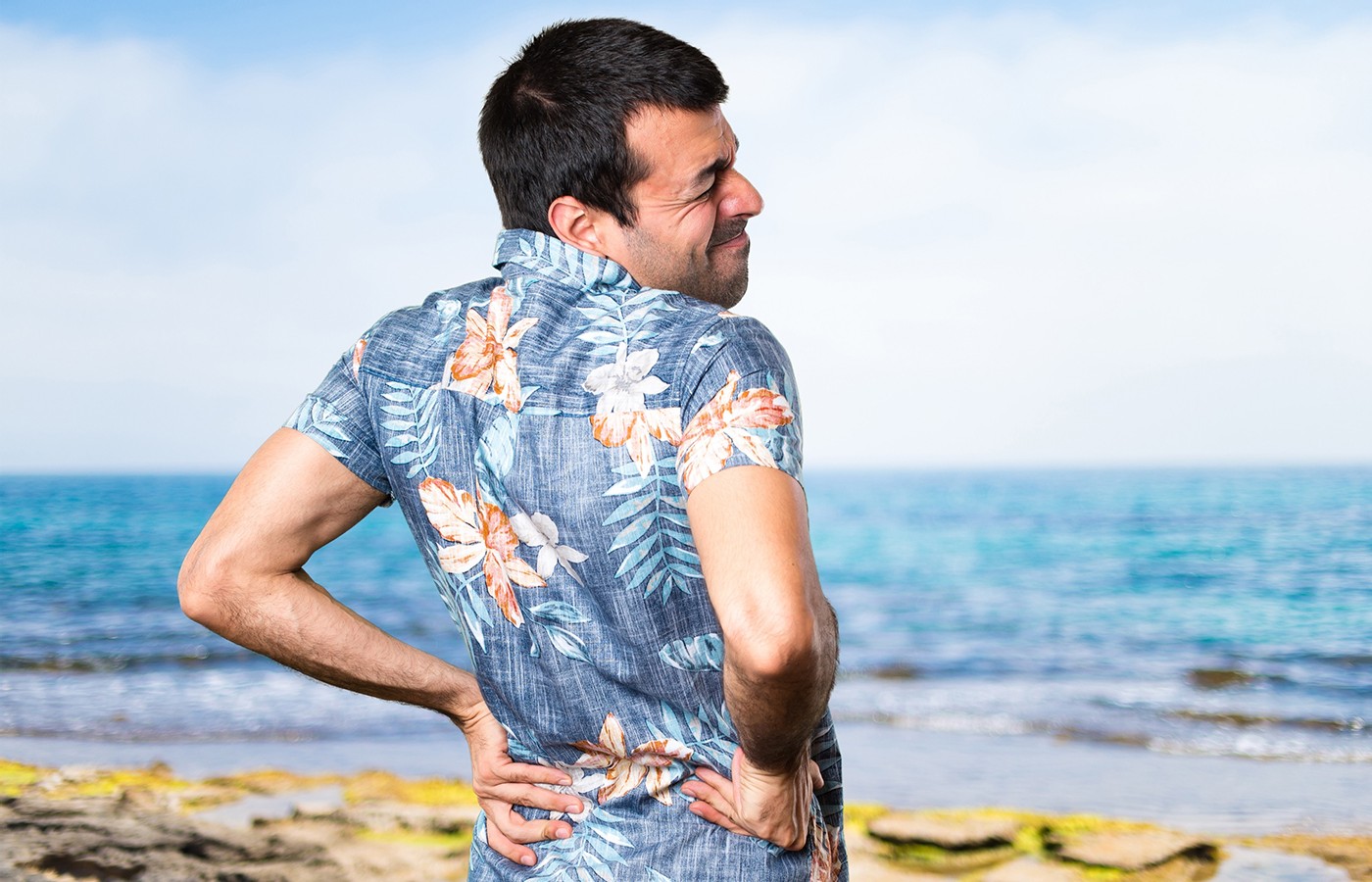It’s a new year and many chiropractors are evaluating what will enhance their respective practices, particularly as it relates to their bottom line. One of the most common questions I get is: “Do I need to be credentialed to bill insurance, and what are the best plans to join?” It’s a loaded question – but one every DC ponders. Whether you're already in-network or pondering whether to join, here's what you need to know.
Vacation Can Be Painful
- Summer is here and that means vacation time. It also means we will see patients whose vacations did not go well for them physically. There are reasons the two go together.
- Too much activity, unfamiliar activity, poor physical shape, pre-existing injury, and"avoidable" accidents are all causes of health issues post-vacation.
- Usually, late in the week, I start asking patients how they will finish the week and if they have plans for the weekend. I use a similar tactic early in the week. I ask what the patient did for the previous weekend and what the week holds in store.
Summer is here and that means vacation time! It also means we will see patients whose vacations did not go well for them physically. There are reasons the two go together. Consider the following.
1. Too Much Activity
The person participated in an activity they are familiar with, but at a higher intensity than previously. An individual may drive intermittently during the week, but on vacation, they might drive for hours. Poor car seats, a lack of rest, awkward or prolonged postures, bumps in the road, and vehicle vibration may be detrimental individually or in concert.
A person who plays golf occasionally might play every day for a week on vacation, resulting in sizable lower back stress and strain. Someone who walks a couple of miles a day for exercise will have trouble walking in theme parks, where nine to 11 miles per day are typical.
2. Unfamiliar Activity
The person participated in an activity they had never experienced and were unprepared for physically. If a person has never rowed a canoe for hours, white-water rafted, zip lined, ridden a horse, climbed rocks, water skied, or played “chicken” in the pool, anything from mild soreness to significant injury can occur.
Strange beds / pillows are also frequently the culprits of vacation complaints. Beds that are too hard or soft, sleeping on a cot or sofa, and sleeping on the ground contribute. Pillows that are too thick or thin, or that don’t help protect the cervical curve, also play role.
3. Poor Physical Shape
The person was in terrible shape and was not ready for any activity. People who lack flexibility, are overweight or obese, never exercise, and/or have poor health habits are not good candidates for a vacation that involves moderate to intense physical activities.
4. Pre-Existing Injury
The person was already injured and the activity added insult to injury. It is common for patients with known physical problems and limitations to plan a vacation that requires high levels of physical activity. They may be in the middle of care or on work restrictions and think they can handle the physical stress. Usually, they can’t.
5. “Unavoidable” Accidents
The person was prepared for an activity, but friends and family provided the opportunity for injury. Using the premise of comedian Jeff Foxworthy’s joke, “If a friend or relative of yours was injured or died just after saying, ‘Hey y’all, watch this’, you might be a redneck.” If a person vacations with friends and relatives with this mentality, they might become long-term chiropractic patients.
The person used poor judgment. Jumping from the hotel’s balcony into the pool is a good example. Missing the pool is a better example.
Pre- / Post-Vacation Assessments
A quick sidebar: As you know, the hormone relaxin is released during the seventh month of pregnancy. The hormone softens ligaments to allow the pelvis to expand during birth. Unfortunately, the hormone softens ligaments systemically, making most joints as loose as Pinocchio’s. The flexible joints make it difficult for the mother as she carries excess weight, and her center of gravity has shifted. The likelihood of musculoskeletal problems escalates.
The effect of relaxin lasts three to four months postpartum. The mother is still trying to lose the remaining weight from pregnancy, and is lifting and bending more during this time. The likelihood of musculoskeletal problems escalates further.
These facts indicate the need for chiropractic care pre- and postpartum. They also relate to your approach to patient vacations.
Usually, late in the week, I start asking patients how they will finish the week and if they have plans for the weekend. This small talk helps me get to know patients. However, my primary purpose is to get the patients to tell on themselves. It helps me determine if they are doing something or preparing to do something that isn’t in their best interest.
I use a similar tactic early in the week. I ask what the patient did for the previous weekend and what the week holds in store. These questions help me identify vacation plans and other activities that could cause harm.
The questions offer an opportunity to educate the patient before the vacation and formulate a safety plan. (Of course, keep in mind that even if you discover plans which could be detrimental and inform the patient, it does not guarantee the patient will change their plans or heed any warnings.)
The questions also provide the opportunity to help identify the origins of complaints after their vacation has concluded. Many patients do not make the connection between activities from a recent vacation and their current ailments that require your care.
I care for patients before and after vacation, just like I care for a patient before and after delivery. My plan could be better, but it can be a lifesaver for many patients.



